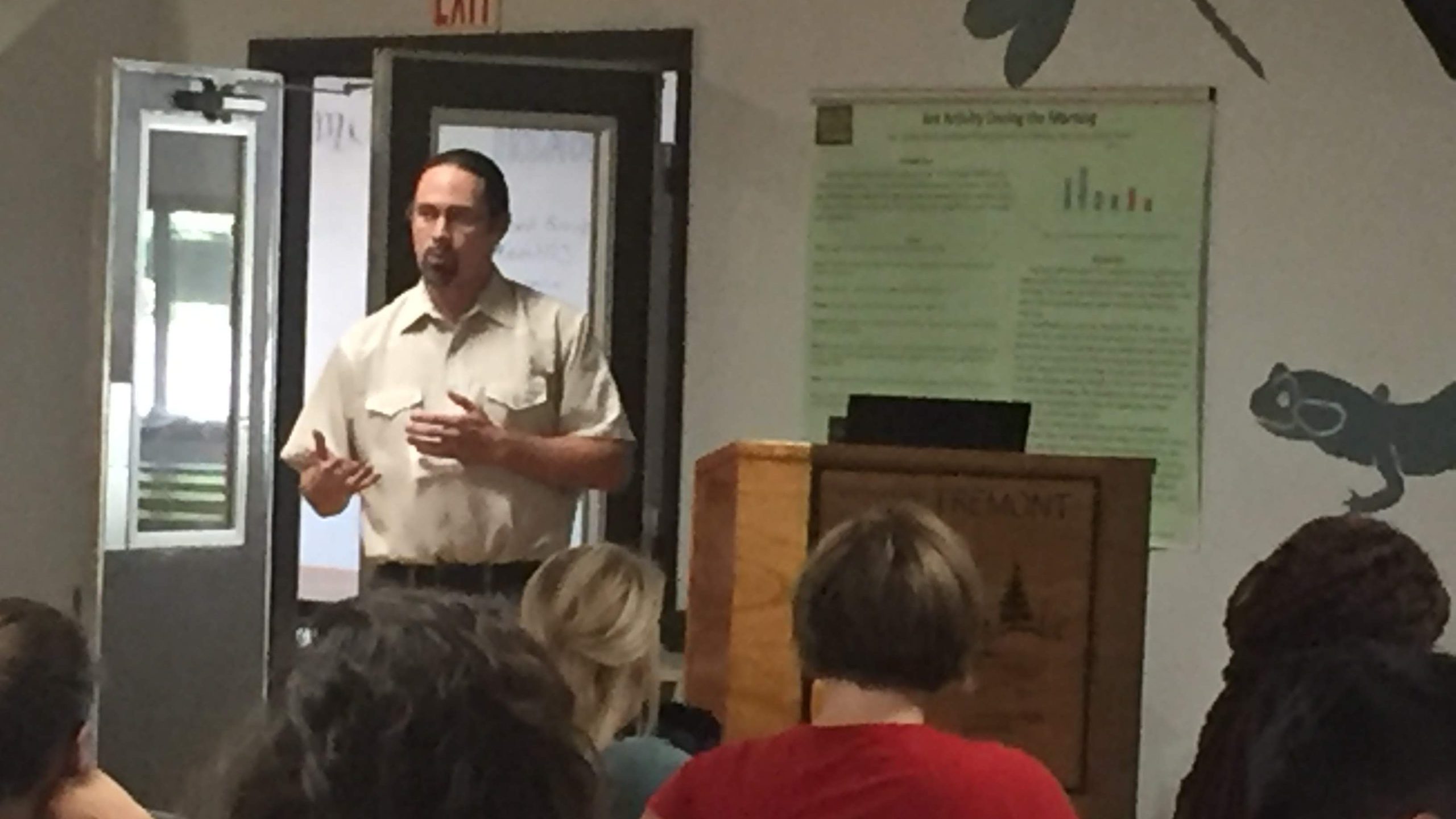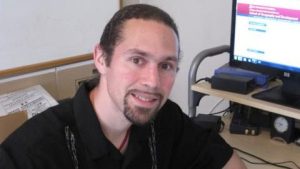Researcher Spotlight – Casey Thornbrugh

 Southeast and Northeast Tribal Climate Science Liaison, Casey Thornbrugh, was featured in the American Geophysical Union’s On the Job blog. This blog intends to provide career guidance and professional enrichment to students and professionals in the field of geoscience. The original feature was written by srauch, an author at On the Job, and can be viewed here.
Southeast and Northeast Tribal Climate Science Liaison, Casey Thornbrugh, was featured in the American Geophysical Union’s On the Job blog. This blog intends to provide career guidance and professional enrichment to students and professionals in the field of geoscience. The original feature was written by srauch, an author at On the Job, and can be viewed here.
Stop Talking and Listen
Career arc: A citizen of the Mashpee Wampanoag Tribe, located on Cape Cod, MA., Thornbrugh’s life and work center around serving American Indian Tribal Nations.
Although he grew up outside of the Tribal community, his parents instilled in him a strong connection to its culture and values from an early age. While pursuing his doctorate in geography at the University of Arizona, Thornbrugh commuted an hour and 20 minutes roundtrip several times a week to teach Weather & Climate 101 at Tohono O’odham Community College, a Tribal College on the Tohono O’odham Nation. It was a place where most of the students were the first in their generation to attend college and where phenomena like heat and storms have spiritual and cultural—not just scientific—significance. He considers teaching that class to be the most important thing he did during graduate school.
Rather than pursuing a career in academia along with his peers from his doctoral program, Thornbrugh decided to bring his expertise back to his community, where he felt his work could really make a difference. After earning his PhD, Thornbrugh took a job in the Natural Resources Department of the Mashpee Wampanoag Tribe. The experience gave him a firsthand glimpse of how Tribal governments operate, the diverse issues Tribal Nations face and the sometimes overwhelming demands they must keep up with.
Today, as Tribal Climate Science Liaison for United South and Eastern Tribes, an organization that provides advocacy and assistance to support Tribal Nations, Thornbrugh serves as a bridge between Tribal communities, U.S. federal government programs and the scientific community. He says a big part of his job is helping Tribal Nations tap into their own expertise and link it with what science has to offer.
“I’m sort of a matchmaker. I try to connect people to the resources that they need to do their work. To do that well, I feel it’s important to work with Tribal staff, community members, leaders, and elders and try to find what the Tribe’s priorities, knowledge, and worldview are—how they live with the weather and how they predict it—before we bring in all the satellites and data.”
Motivation: Early in his educational path, Thornbrugh realized that for him, research wasn’t just “academic.” It was about how to inform real-world decisions and solve problems.
“I enjoy going to different communities and learning what they need, and I really like to get tangible things done. In school, we learn about all the problems and things that aren’t working out so well. I don’t like to just keep talking about things, I’d rather focus on creating a plan to address those problems.”
How I see community science: For Thornbrugh, working with communities isn’t about telling people what needs to happen. Nor is it about bringing them into the academic way of doing things, for example, by pulling community leaders into a complicated, time-consuming research project committee.
“Because I was in their shoes working for my Tribe, I know how stretched they are. The best thing scientists can do is really listen to what the needs are and how to help. I visit people, take notes on what they need, and then try to get that need met.”
Looking ahead: There tends to be a dichotomy between the values and approaches of the mainstream research community and Indigenous communities. Thornbrugh would like to see more people in the middle—people who go out and get the expertise, then bring it back to the community. If you do decide to follow the academic path, he says, it’s important to stay grounded in your community in other ways.
“Find ways to stay connected to home, to your Tribe or to your community. Maybe you can do some consulting, or volunteer with a youth group. If you don’t, it’s easy to get lost. If I don’t go home and reconnect, I forget the nuances.”
Finally, finding ways science can help communities doesn’t always require a PhD, Thornbrugh says. Expertise is nice, but the key skill is really good listening and communication skills.
“It involves being able to communicate, but also knowing when to stop talking and listen. When I came back to work with my Tribe, I had been a teacher and I was used to talking a lot. Family members and elders would say, ‘That’s great—but you get a lot more information when you just listen!’”
Casey Thornbrugh, Ph.D., Tribal Climate Science Liaison. United South and Eastern Tribes, Northeast & Southeast Climate Adaptation Science Center
- Categories:
